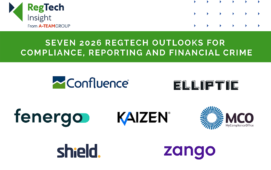
The US Consolidated Audit Trail (CAT) has hit another hurdle with the CAT National Market System (NMS) confirming that it is ‘transitioning the CAT project to a new plan processer’. This suggests Thesys Technologies, which was rather surprisingly selected as the plan processor by the self-regulatory organisations (SROs) that operate the CAT NMS in May 2017, has been dropped from the initiative, most likely due to missed deadlines in building the CAT and preparing for reporting.
The Financial Industry Regulatory Authority (FINRA), which missed out on the contract first time around and operates the CAT predecessor, the Order Audit Trail System (OATS), is likely to be interested in taking over the plan processor role, although large data vendors such as Bloomberg and Refinitiv cannot be ruled out.
In a statement on February 1st, 2019, the CAT NMS notes: “In transitioning the project to a new plan processor, the participants are evaluating the impact the transition will have on current industry member implementation plans. While certain dates may change, there are no material changes planned for the industry member technical specifications. The participants will continue to work with industry participants to finalize the industry member reporting specification.”
The CAT (aka SEC Rule 613) has had a chequered history since the Securities and Exchange Committee (SEC) approved the CAT NMS plan in November 2016. Troubles have included complaints about the burden the CAT puts on broker dealers, its funding model, and the proposed collection of client data that creates risk in the event of a breach.
There have also been numerous implementation delays, despite early SEC efforts to hold to the original time plan that required, but did not realise, first reporting in November 2017. The latest proposals on timing were presented by the SROs to the SEC in May 2018. They called for first phase reporting by SROs to start on November 15, 2018, second phase reporting for large broker-dealers to start on November 15, 2019, and all phases of small broker-dealer reporting to be complete by November 15, 2022. While a flurry of attempts to report to the CAT was made in late 2018, reporting appears to have stalled.
According to the CAT NMS statement: “As an initial matter, the participants anticipate the initial test period for data ingestion will move from August 2019 to late 2019 and plan to announce a more fulsome implementation schedule shortly.”
Subscribe to our newsletter




